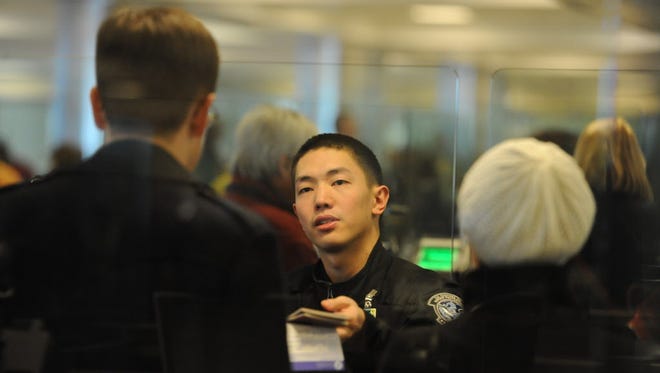Stockholm airport agrees to join Preclearance, 11 other airports start negotiations
Swedish officials agreed Friday to have the Stockholm airport participate in U.S. Customs and Border Protection's Preclearance program for screening travelers overseas beginning as early as 2019. In addition, 11 other airports including those in Mexico City and Rome have agreed to begin negotiations to join the program, the Department of Homeland Security announced Friday.

The goal of the so-called Preclearance program is to extend security and thwart the arrival of unwelcome visitors before they reach the U.S. But the advantage for all travelers is to clear Customs before getting aboard the plane, and to avoid long lines upon arrival.
The airports embarking on the process to join the program include Bogota, Colombia; Buenos Aires, Argentina; Edinburgh, Scotland; Kansai, Japan; Milan, Italy; Reykjavik, Iceland; Rio de Janeiro and Sao Paolo, Brazil; and Saint Martin in the Caribbean.
More than 10 million travelers fly to the U.S. from those airports each year. The program already screens about 18 million travelers per year arriving from 15 airports mostly in Canada, the Caribbean and Ireland.
"Preclearance allows DHS to screen individuals prior to boarding a flight, which means we are able to identify threats long before they arrive in the United States,” said Jeh Johnson, secretary of homeland security.
Security officials want to expand overseas customs screening
Officials in the U.S. and those countries will now begin negotiations toward formal Preclearance agreements. Swedish officials signed such an agreement Friday for the Stockholm airport to join Preclearance, which U.S. officials said could begin there in 2019.
After signing the agreement, the airport awaits action from the Swedish parliament to invest in Preclearance facilities and the legal process is expected to be completed by mid-2018, according to Karl Wistrand, CEO of Swedavia, the state-owned group that operates 10 airports across Sweden.
Stockholm had about 1.1 million travelers between the U.S. and Sweden, with about 60% on direct flights, according to Swedavia.
“The U.S. is Sweden’s most important trading partner after Britain,” Wistrand said. “Travel between the two countries has increased sharply in recent years, to more than 600,000 passengers, and introduction of U.S. Preclearance will have a strong positive effect on both foreign investment and Swedish tourism.”
The chairman of the House Homeland Security Committee, Rep. Michael McCaul, R-Texas, said expanding the program to include Stockholm “will greatly enhance our counter-terrorism efforts and help keep America safe.”
“Now more than ever, our national security demands that we ‘push our borders out’ to make us safer,” McCaul said.
Travel groups welcomed the expansion plans for security and convenience.
"Preclearance marries top-notch security and efficiency to improve the entry experience for U.S. visitors, and the travel community applauds its expansion,” said Roger Dow, CEO of the U.S. Travel Association.
The Preclearance program began in 1952 in Toronto and remains popular among travelers and participating airports. But an expansion to the airport in Abu Dhabi in January 2014, which is partially funded by United Arab Emirates, was controversial because no U.S. airlines fly directly from that airport. U.S. airlines and unions argued that it gave an unfair advantage to Etihad Airways.
Johnson had announced in May 2015 that he would negotiate to expand to 10 airports in nine countries: Belgium, the Dominican Republic, Japan, the Netherlands, Norway, Spain, Sweden, Turkey and the United Kingdom. Those airports send about 20 million travelers a year to the U.S.
At the point of that announcement, Customs had 600 law enforcement offices and agriculture specialists stationed at Preclearance stations. Those officers denied admission to the U.S. to about 10,000 people in 2014.
“Preclearance has proven to be a valuable tool for CBP, foreign airports, the aviation industry, and most importantly, the traveler, who benefits from shorter wait times,” CBP Commissioner Gil Kerlikowske said.
Homeland Security sees results focusing on riskiest travelers